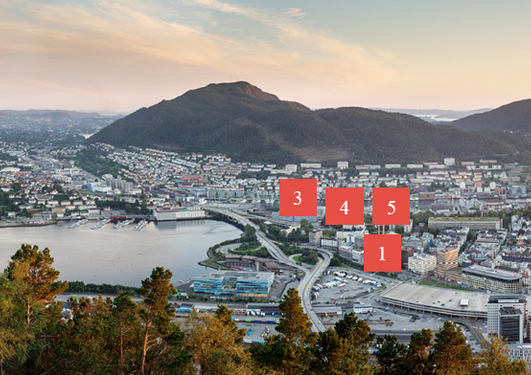Background
A knowledge cluster for medieval studies will build on the university's strong academic environment and develop contact with external partners, such as schools, museums and the tourist industry.
Main content
In the UiB strategy, the knowledge clusters are featured as following:
"The establishment of knowledge clusters is one of several working methods by which we can reach UiB’s goal to develop outstanding research and education environments of excellence. The clusters are based on interdisciplinary collaboration to solve complex issues. The clusters must be established in areas in which UiB already possesses high international academic quality, but also in other areas where there is an opportunity for comprehensive cooperation between academic environments internally at UiB and external partners in research institutions, business, public administration and cultural and societal entities. Our activities need to be financed to a significant extent through externally acquired funding."
Why establish a medieval research cluster?
Knowledge about the Norwegian and European Middle Ages is decisive for our understanding of the modern cultivation of knowledge, urbanisation, development of democracy and the principles of equality between individuals, indeed for the whole of our modern culture. Knowledge about topography and landscape and their role in history gives us an understanding of the social, economic and legal continuation of local communities, legal understanding and social self-understanding. Taken together, these are all relevant themes in today’s society, and yet, as viewed in a distant mirror, many of them are already reflected in medieval literature.
The Middle Ages is central and foundational for the history of Bergen, the West of Norway and all of Norway, and it places Norway securely in a European context. The University and Museums sector in Bergen constitutes a large and diverse academic community in the field of Medieval Studies.
A knowledge cluster for medieval studies will build on the university's strong academic environment and develop contact with external partners, such as schools, museums and the tourist industry. The cluster will become an interdisciplinary driving force for, among other; medieval history, philology, archeology and literature in close contact with regional institutions. The cluster will also be a driving force in the development of local and national dissemination of knowledge of the Middle Ages.
